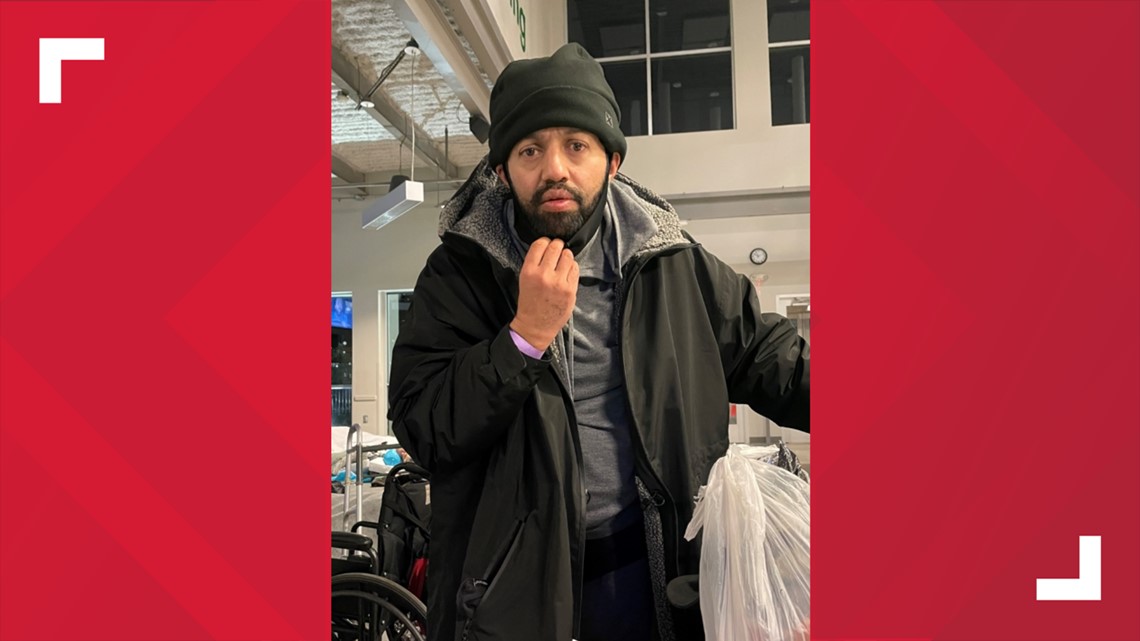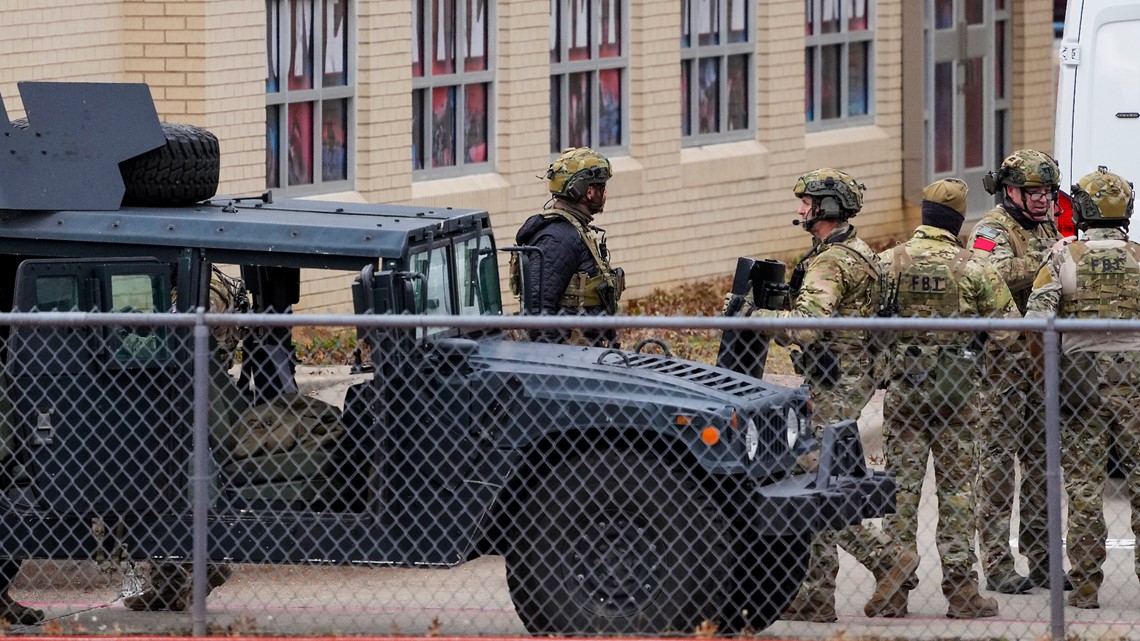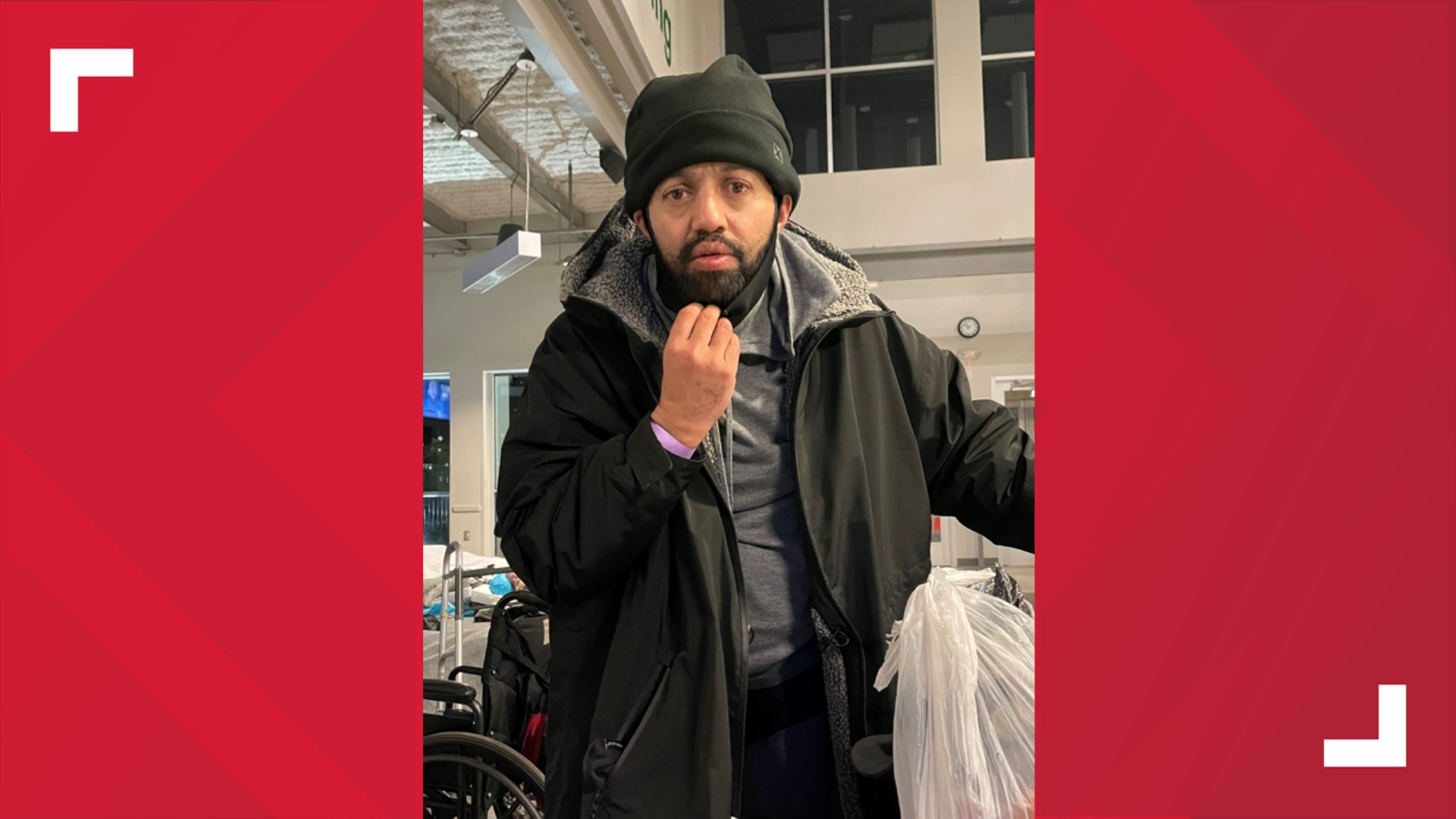DALLAS — Malek Faisel Akram appears to have raised no red flags upon his arrival in the United States in late December or during the two and a half weeks he was in the country before allegedly holding four victims at gunpoint for almost 11 hours inside a Colleyville synagogue.
Akram entered the U.S. on Dec. 29 through JFK Airport in New York.
How long he spent in New York is unclear as is how he made it to North Texas.
Around 10 p.m. on Jan. 2, he arrived at Our Calling, a homeless shelter just south of downtown Dallas.


He was bundled in black and grey winter clothes with a black hat on his head.
He was wearing a black mask but pulled it down below his beard when staff photographed him – as they do with all clients who stay there.
“He came in, checked in, got his COVID test,” Patrick Palmer, chief advancement officer at Our Calling said. “After he passed his COVID test, he was checked into our software where we ask a handful of questions and then gave him a place to stay out of the cold weather for the rest of the night.”
Palmer said the questions asked of Akram are asked of everyone who comes in. He told staff members he had no income and was living on the street.
Akram did not arrive at the shelter alone, Palmer said.
A man who was “heavyset and a little shorter,” came in with him, according to Palmer.
“The gentleman that dropped him off came into the facility and spent a handful of minutes with him – 15 to 20 minutes,” Palmer said. “After [Akram] was COVID tested, they shared a few words, gave a big hug and departed ways.”


Our Calling has turned over pictures and videos of that person to the FBI.
“Just because somebody drops you off and gives you a hug when you say goodbye to them doesn’t necessarily mean that person is a partner in crime,” warned Alex del Carmen, a criminologist at Tarleton State University.
Del Carmen trains FBI agents and homeland security officers and said investigators are without a doubt working to build an exact timeline of where Akram was and when.
RELATED: 'It didn't look good': How the Colleyville rabbi and 2 other hostages escaped their synagogue
Palmer said Akram left Our Calling before lunch was served on Jan. 3.
On Jan. 6, he showed up at Union Gospel Mission, a shelter just northwest of downtown Dallas.
He spent the nights of Jan. 6 and Jan. 12 with Union Gospel, according to the shelter’s CEO.
According to ABC and the BBC, the British counterterrorism agency MI5 put Akram on a watchlist as a “subject of interest” in 2020.
But after an investigation, the agency removed him from that list in 2021 and no longer considered him a threat.
White House Press Secretary Jen Psaki said Akram was “checked against U.S. government databases multiple times prior to entering the country and the U.S. government did not have any derogatory information” about him.
Del Carmen said communication about terror suspects is “a thousand times better” than it was before 9/11, but he said it’s not always the case that information would be shared among countries about someone who was taken off a watchlist.
When it comes to a terrorist, “it’s not that we have a universal definition,” del Carmen said. “But, I would say that we are just as sensitive as our partners across the ocean as far as who comes under our scrutiny as being a potential terrorist. What does differ is the way we investigate.”
The staff at Our Calling said there was nothing remarkable or abnormal about their interactions with Akram or the man who brought him in.
Del Carmen said this incident should be a reminder that America remains vulnerable.
“We’ve been distracted,” he said. “We have in many ways not looked overseas as potential threats continue to come, and this is a reminder that we need to be vigilant.”

